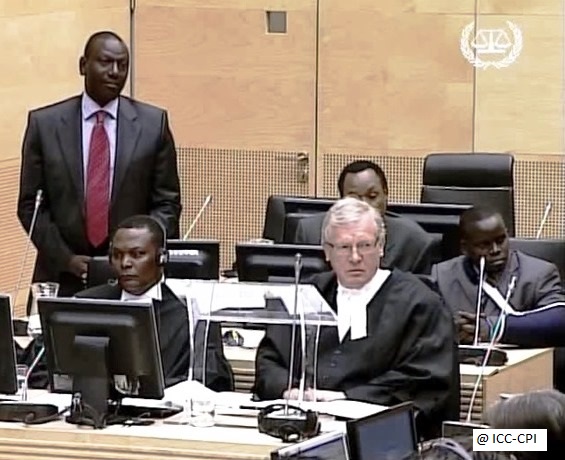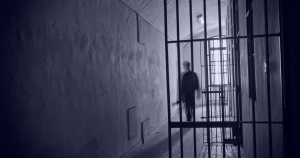Brussels – Rome, 6 April 2016
On 5 April 2016, Trial Chamber V(A) of the International Criminal Court (ICC) decided, by majority, Judge Olga Herrera Carbuccia dissenting, to vacate the charges and terminate the case against Kenya’s Deputy President William Ruto and former broadcaster Joshua Arap Sang. This decision may be subject to an appeal and is without prejudice to the possibility of bringing new charges at a later date either before the ICC or before national courts, if there is sufficient evidence to do so. Deputy President Ruto and Mr Sang were facing three counts of crimes against humanity (murder, deportation or forcible transfer of population and persecution) allegedly committed in the context of the 2007-2008 post-election violence in Kenya which left over one thousand people dead and displaced hundreds of thousands.
Statement by Alison Smith, Legal Counsel of No Peace Without Justice:
“Yesterday’s decision is clearly a major setback in the process to ensure redress for the hundreds of thousands of Kenyan victims and to signify that the days of rewarding violence with political power in Kenya are over. We’re clearly disappointed, having worked so closely with the Kenya National Commission on Human Rights on initial information collection in early 2008. But this is nothing compared to how the victims of the crimes in this case must be feeling.
“As highlighted by the ICC judges’ ruling, the troubling incidences of systematic witness interference (including through bribery and intimidation) and intolerable political meddling are key factors that led to yesterday’s decision. It is impossible to know whether the evidence the Prosecutor might have had in less hostile circumstances would have been sufficient to sustain the charges. By vacating the charges, at least the door has been left open for future prosecutions either at the ICC or in national courts. The possibility for justice is still there; the vacation of these charges at this time has not stripped the ICC of jurisdiction, nor of the possibility that charges may be brought against any of those initially charged with the commission of crimes during the post-election violence in 2007-8.
“More must be done to avoid this occurring in the future. Yesterday’s decision further demonstrates that the court was unprepared to deal adequately with the challenges it encountered in its Kenya investigations, especially when politically powerful people are involved, and the decision’s discussion on the political environment highlights the need for stronger support for the ICC from its States Parties and others.
“For the ICC, yesterday’s outcome – as with the withdrawal of charges against President Kenyatta – points to the failure of the previous investigative strategy of the Office of the Prosecutor. The lack of field presence by the ICC Investigative Division when conditions allowed made it next to impossible to build the kind of trust and rapport with witnesses that is needed to sustain its work from initial contact through to trial. The vacation of charges proffered against Deputy President Ruto and Mr Sang also indicates that the previous strategy of focused investigations simply did not work. In complex situations like those in Kenya – and indeed all of those under investigation at the ICC – there is a need for proper, full and sustained investigations by experienced professionals. This is the only way to make sure that the Prosecution does have sufficient evidence to prove the criminal responsibility of whoever they bring charges against, in the absence of any justified defence.
“We hope that the changes made by the Office of the Prosecutor and the Registry over the last couple of years will correct these failings of the past and encourage ongoing reflection to continue to improve the process, including the Registry’s restructuring of witness protection programs. We encourage the Prosecutor to take a fresh look at what her Office can do to move forward with these cases. This cannot be the end of the line for the victims of the post-election violence.
“We also encourage accountability for those alleged to have been involved with witness tampering: there should be full investigations and charges should be brought where warranted, as was done in this case. The three individuals charged with witness tampering – Walter Barasa, Paul Gicheru, and Philip Kipkoech Bett – should be surrendered immediately to the ICC. Their trial may also provide some insight into the scale and modalities of the conduct that undermined this case and help avoid similar situations in the future.
“Beyond that, ICC States Parties need to take a critical look at their role in supporting the international criminal justice system and ensuring that the independence of the Court is protected. The cases brought in the Kenya situation – particularly those against President Kenyatta and Deputy President Ruto – may well have been the trigger for a concerted political campaign against the ICC. But the fact those cases are not currently being pursued does not signal an end to that campaign. There are tough times ahead; ICC States Parties need to be prepared to defend the system and realise its promise for justice and redress for victims of the worst crimes the world over.
“Above all, our thoughts are with the people of Kenya and with the victims of the crimes committed during the post-election violence. They are the ones who have to bear the brunt of yesterday’s decision, which leaves them denied the justice and redress they rightfully deserve. Sadly, the failure to complete any cases before the ICC and the absence of any real domestic criminal accountability process to address the crimes committed in 2007-2008 will not help breaking the cycle of impunity for politically-motivated violence that has been the norm in Kenya for far too long”.
For further information, contact Alison Smith on asmith@npwj.org or +32-2-548 39 12 or Nicola Giovannini on ngiovannini@npwj.org or +32-2-548-3915.




